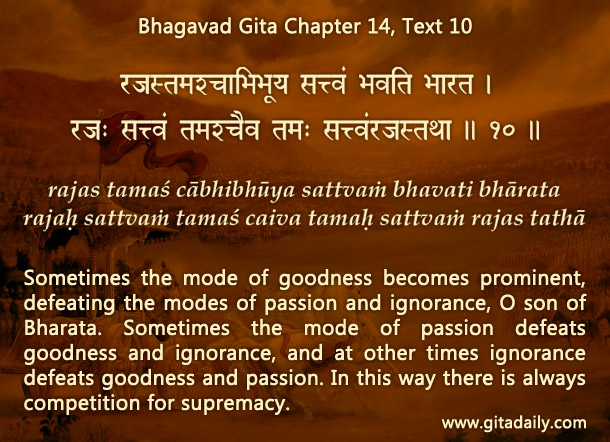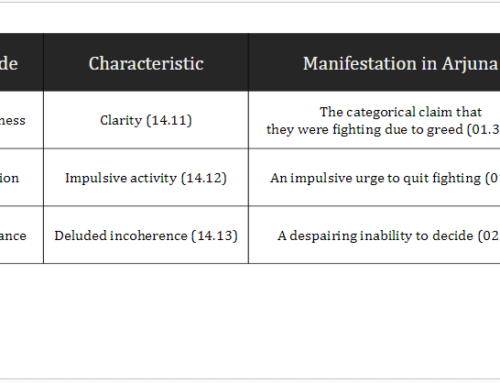The modes, the Bhagavad-gita explains, are subtle forces that shape the interaction between consciousness and matter, thereby inciting us to action. If we act according to the modes’ dictation, then don’t the modes take away our free will?
No, because they determine the gamut of our choices; they don’t determine our specific choice.
Consider for example a student appearing for a multiple-choice exam. The multiple choices in the answer paper restrict the scope of the answers that the student can choose, but they don’t force the student to choose any one particular answer among those options.
Similarly, the modes provide us a gamut of choices. The Bhagavad-gita (14.10) mentions that the modes often exist in a state of perennial competition. In the next three verses (14.11-13), the Gita informs us of the characteristics that manifest when a particular mode becomes pre-dominant.
This description helps us recognize when a particular mode starts appearing in our consciousness and becoming prominent. With that recognition comes the opportunity for rectification. Just as an enemy can be checked if their intrusion or even their intrusiveness is detected early on, similarly we can prevent the predominance of any particular mode in our consciousness if we can detect their appearance early enough.
By our past conditionings and by our present circumstances, certain choices may seem habitual for us. But what seems habitual is not necessarily unavoidable. The more we become spiritually aware of our best interests, the more we can explore and evaluate the available options from the perspective of our enlightened self-interest. And the more we connect with Krishna through loving devotion – or at least the intention of loving devotion – the more we can transcend the modes’ pull. Thus, we can become increasingly free to put our free will for full and fulfilling use.
To know more about this verse, please click on the image
Explanation of article:

Podcast:
Download by “right-click and save”



very very nice, Chaitanya Charan prabhu.
Well I liked all quotes and some are really beautifull and applicable in practical life ,but I didn’t understood clearly the quote “The modes determine the scope of choices not our specific choice.